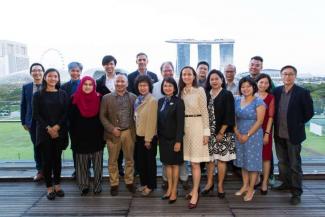
The SMU Applied Research Centre for Intellectual Assets and the Law in Asia, and Wee Kim Wee Centre, in partnership with the National Gallery Singapore, hosted the inaugural conference on Cultural Industries and Intellectual Property in Southeast Asia on 1 and 2 February 2018. More than 250 guests and speakers convened at the National Gallery Singapore on the first day and at SMU’s Mochtar Riady Auditorium on the second day.
Looking at the potentials and dynamics of intellectual property (IP) in protecting and developing cultural industries in the Southeast Asia region, the conference served as a platform for interdisciplinary discussions and lively exchanges of perspectives. Experts from diverse backgrounds assessed the challenges and the relevance of evolving broad regional perspectives on the relation between the cultural industries and IP.
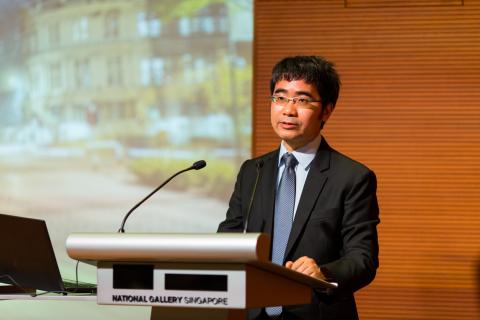
To protect and promote a variety of cultural assets both locally and globally, discussions on IP as a driver for cultural development had become increasingly important in the region. Helming Panel 1 as chair and moderator, Professor Kwok Kian Chow from SMU’s School of Social Sciences set the stage with the fact that IP protection in cultural industries had often been thought of in terms of ownership of contemporary creations, and was tied to specific cultural markets such as fine art or music.
He highlighted that in addition to this general account, policy makers, academics, and members of the public and private sectors could instead take a broader perspective. They could consider the potentials of IP protection for traditional cultural identities, national heritage, and cultural expressions, while still balancing this protection with the need to stimulate creativity and innovations.
Although the importance of IP protection in this context had been addressed before, it was agreed that the scope and details of this protection were far from settled. Panel speakers discussed the fact that culture is never static and therefore, how contemporaneity and tradition related to one another in terms of identities, discourses, aesthetics and creative industries was significant.
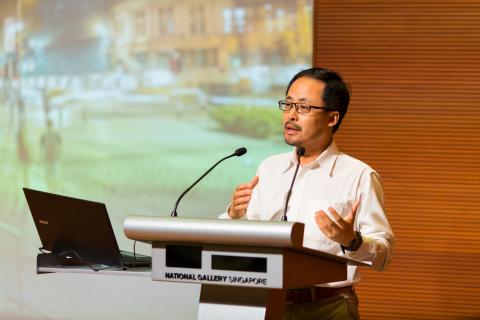
During the two day conference, speakers tackled issues ranging from how far IP protection should be further introduced into the broad policies and management perspectives of all cultural industries, to how IP protection could assist in ensuring a more effective industry wide development with respect to the broadest set of cultural assets from the Southeast Asia region.
Speakers, comprising artists, curators and experts in cultural studies, held robust discussions on the extent to which artists and creators, and their managers, could use traditional channels as well as new platforms in media technology to promote cultural industries. Lawyers, including Ms Irene Calboli, Lee Kong Chian Fellow, Visiting Professor, and Deputy Director of the Applied Research Centre for Intellectual Assets and the Law in Asia, School of Law, SMU, who were present as speakers at the conference contributed their deep bench of expertise to comment on the role of IP in the context of cultural development.
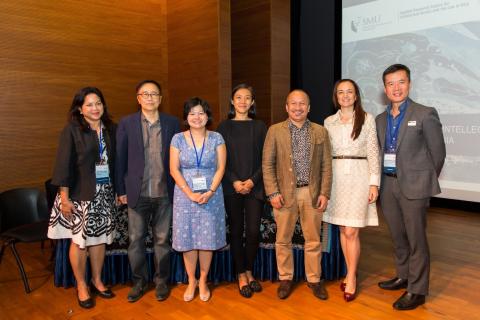
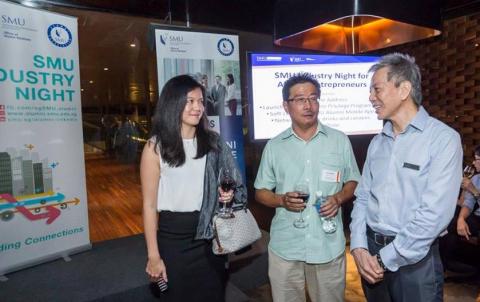
The inaugural conference concluded on a positive note, having brought together a variety of stakeholders who contributed in shaping relevant proposals to facilitate even greater circulation and cultural exchanges regarding the heritage and cultural assets from the Southeast Asia region locally, regionally, and in the global sphere.
Featured photo: Conference speakers at the National Gallery Singapore on 1 February 2018. (Front row, L-R) Jennifer Teo, Ida Madieha Abdul Ghani Azmi, Joe Sidek, Koh Kheng-Lian, Khieu Mealy, Irene Calboli, Ana Labrador, Cai Yunci, Michele Chew, Kwok Kian Chow; (Back Row, L-R) Bhumindt Butr-Indr, George Hwang, Samuel Seow, Denis Croze, Peter Jaszi, Eric Chin, Agus Sardjono, Ryan Su.